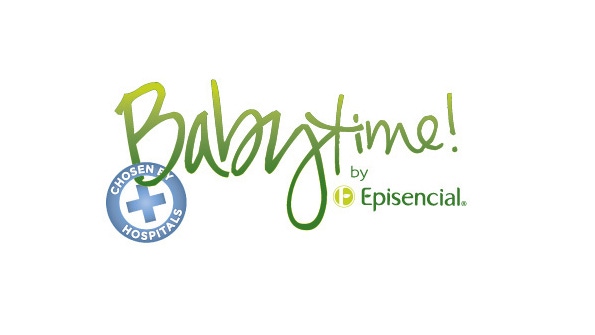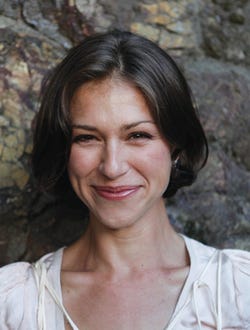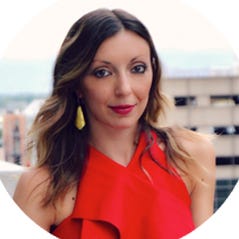
Episencial founder Kim Walls stood in the grocery store aisle, tears dripping down her face. Her mission to find a truly natural and nurturing personal care product for her unborn child was unaccomplished. In that moment, she didn’t just see a need. She saw a market. Five years later, in 2008, California-based baby and pregnancy body care brand Episencial was born. After recently raising more than $200,000 on the crowdfunding site CircleUp, Walls shares how she is expanding offerings and education.
Natural Foods Merchandiser: What was your inspiration for Episencial?

Kim Walls
Kim Walls: It wasn’t the plan to start a company; it was a vision to fulfill a need. I have been in the natural skin care industry my whole life, so I had very high expectations. I saw nothing that met the natural and eco-friendly standards I expected and was also an awesome product.
What was really missing from products on the market was the experience of human touch. No product captured the pleasure and experience of that moment.
NFM: Why did you focus on children’s personal care?
KW: It came from the heart. I was devastated by the lies being told and felt compassion, empathy and sorrow for moms using products with ingredients that were hurting their kids. Children and parents, who I felt a special bond with, were being disserviced. I felt like I needed to do something about it, and I knew that I could.
NFM: What was the first retail account you landed?
KW: I really wanted these products to be widely available, so the first important account was Whole Foods Market. I continually took different product lines, packaging and ideas to the chain for four years. Buyers took those meetings every time and offered feedback.
NFM: How have your marketing efforts changed?
KW: I wanted to accomplish so much, so at first I tried to put every piece of information on the packaging. But to an unwitting consumer, there was no message clarity. It was like a kid jumping up and down in preschool, waving his arms and not being able to shut up.
Over the years, we have refined our brand message with one or two points of clear differentiation. We first get a mom’s attention and earn her trust, and therefore we can talk about more. I still feel there’s so much to teach, and this brand is a platform for me to educate. If I give people a product and they turn it over, read the package and then go to our website, that’s an opportunity to share, educate and build community.
Transparency and consistency are the most important things in this quickly changing industry. Regulations and access to raw materials are changing rapidly. We’re coming from a place of mission and advocacy, and in some ways true humanitarianism, rather than bottom-line profit.
NFM: Why is education important?
KW: The world of natural health is evolving and a lot of misinformation and false marketing exists. As a brand, if we have the opportunity to focus on education and quality of information first, then hopefully we are enabling and empowering retailers to share that with their consumers.
There’s a lot of science around the skin as an organ, and as much as we can share this knowledge, that helps sell our products. There’s reciprocity at play. If we give information that a consumer can apply to her life, then I believe she will want our products. As a human, we all have our areas of expertise. Mine is skin, and I want to share that and put parents at ease. You don’t want to learn how to fly a plane because you want to get somewhere—you want your pilot to do that.
NFM: How do you develop strong partnerships with retailers?
KW: Many retailers gravitate to this industry because of their heart. They care about education, so they pass knowledge along to the consumer. The customer pays more for the product selection, but also for the attention. We focus a lot on education through phone calls and online videos. If a retailer calls us with a question, it’s often because he or she has a customer on the floor. We make sure our entire team has the product knowledge to address these questions.
Technology is one advantage of business today, yet something that’s really pervasive and unique to the naturals space is a resistance to technology. It makes sense because these are people who have a connection to the earth, and technology seems like it flies in the face of that. At the same time, when it comes to education and efficiency, there’s a lot to be gained. It would allow us to educate more if retailers had webinar platforms that we could access or a way for us to email educational items directly to employees.
NFM: How do you position your products in mass, natural and online?
KW: People looking for natural products will find them with us, but you don’t have to be seeking natural to find value in our brand. Our natural and eco-friendly values and products aren’t going to change, so we don’t adjust the message for different markets. When it comes to beauty and personal care, a mom is a mom is a mom. If you are who you are, your voice will be consistent no matter who you’re talking to. The biggest challenge of mainstream retail is focusing on simplicity for the frontline packaging. There’s more flexibility and freedom to give a lot of info in a natural market, but we also won’t be punished for simplicity in natural.
NFM: What is the biggest challenge for young natural brands?
KW: Brands in our space often run into trouble because many of us come from a place of passion and values but don’t really have the skills to execute a business plan. It’s one thing to have a brand and a product; it’s something totally different to have a business. Being raised in business has been beneficial for me in every way. Doing something around venture capital or crowdfunding programs like CircleUp brings people who have different perspectives into your business.
NFM: What is the best advice anyone has given you about running a business?
KW: Pay attention to profitability. For values-driven people, we’re not really thinking in terms of dollars and cents. Most of us don’t care if we’re living in a mansion. To ask somebody like me to make adjustments to save a cent here or a cent there feels ridiculous, but the reality is a business isn’t a business unless it makes money. Plus, baby personal care works on lower margins than adult beauty products. So for retailers to expect the same kind of discounts for baby personal care reflects a lack of understanding about the cost of making a great product.
NFM: How can independent retailers stay in the game?
KW: One way is by supporting innovation. It’s impossible for a manufacturer to be profitable when a retailer is too focused on price. Some retailers will put young, innovative brands out of business and carry the same big brands that people can get at Target. The retailer can make it a priority to support good, solid vendor relationships and make sure its vendors are making money. Has the retailer created a pricing structure that enables us to work together? That’s a good question to ask rather than just hammering for that lowest price.
NFM: What is the best tip you can give to natural entrepreneurs?
KW: Truly listen to buyers. A “no” from a buyer is valuable. Do not respond with anger and frustration in a way that makes them feel defeated or like they are wrong and you are right. Really, truly listening and trying to change the response can be a powerful tool in building a sustainable brand. Learn from all of these experiences and establish these relationships. The biggest challenge is staying out of the future and remaining in the moment.
Statistics
Year established: 2008
Number of SKUs: 26
Employees: 7
Website: episencial.com
Booth: 4337
About the Author(s)
You May Also Like
.png?width=700&auto=webp&quality=80&disable=upscale)




